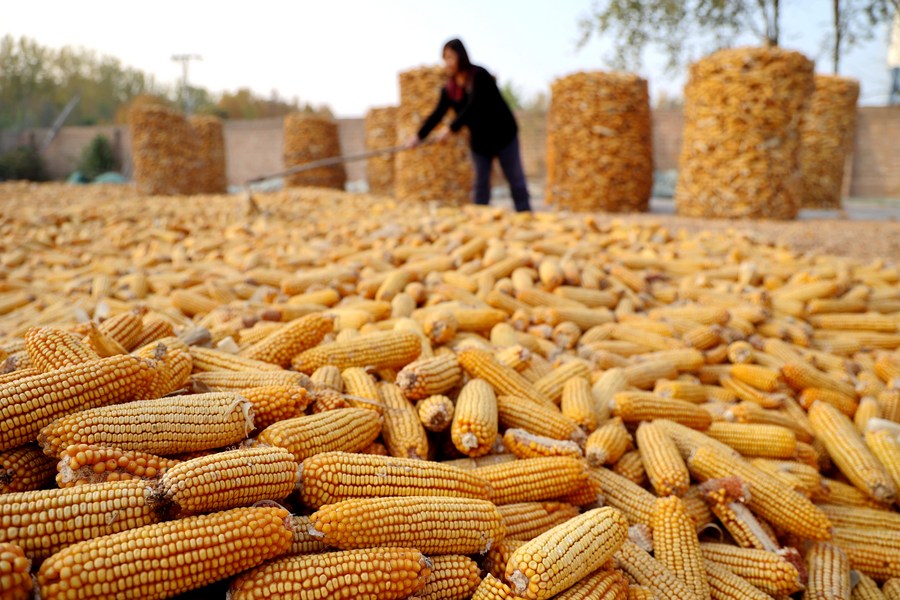Chinese, foreign scientists strengthen cooperation in curbing invasive pests

A farmer airs harvested corn in Binzhou City, east China's Shandong Province, Oct. 29, 2023. (Photo by Chu Baorui/Xinhua)
BEIJING, Oct. 31 (Xinhua) -- Chinese and foreign agricultural scientists will strengthen cooperation in sustainable prevention and control of invasive pests such as fall armyworm to ensure global food security.
A global symposium on sustainable fall armyworm management, organized by the Chinese Academy of Agricultural Sciences (CAAS) and the Food and Agriculture Organization (FAO) of the United Nations, started on Tuesday in Beijing, with the aim of improving the global response against fall armyworm and other invasive pests.
The fall armyworm, a native insect pest of the Americas, has been spread to over 80 countries around the world since 2016. The negative impact of the pest on crop yield in the newly invaded range is immense, according to experts.
In 2019, FAO launched a global action for fall armyworm control to provide a coordinative platform for multiple partners to mitigate the impact of the pest.
Wu Kongming, president of CAAS, said that fall armyworm is a common challenge facing the world. The Chinese government has achieved good results and accumulated experience in curbing the outbreak and the prevention of this pest.
China has actively participated in the global action on fall armyworm control initiated by FAO, sharing its experience and practices in monitoring and early warning platforms and prevention and control technologies, and exploring management models suitable for different regions to jointly ensure the sustainable development of global agriculture, Wu said.
Robert Bertram, a chairperson of the organizing committee of the symposium, said fall armyworm primarily attacks maize, a critically important food crop. The negative impact of fall armyworm on maize yield is immense with an average yield loss of about 18 percent in its first years of invasion.
CAAS provides the technical leadership in monitoring fall armyworm populations and migrations, formulating recommendations and developing new management technologies, Bertram added.
The symposium has attracted more than 200 experts and representatives from research institutions, universities, enterprises and international organizations around the world.
- China's agricultural expertise fuels prospects for rice self-sufficiency in Fiji
- Interview: Agricultural cooperation with China brings more jobs, sustainable development to Central African Republic
- Lesotho seeks closer cooperation with China to boost development
- China's foreign trade in agricultural produce up
- China poised to offer new opportunities for cooperation, say experts

